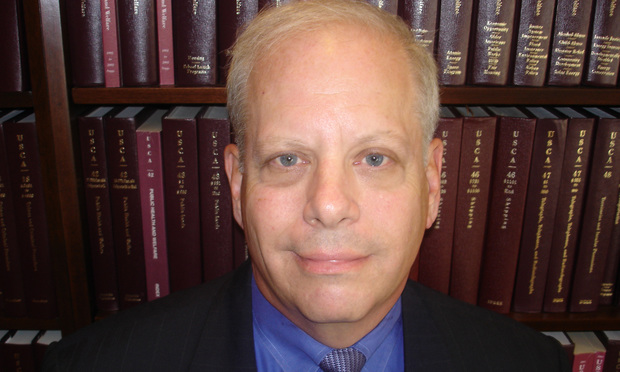 Andrew Lavoott Bluestone
Andrew Lavoott BluestoneIn 2014 we wrote about a new and unparalleled rule that if an charm of the case primary to a authorized malpractice motion was moderately most likely to succeed, that attractiveness have to be taken or the authorized malpractice scenario is waived. Grace v. Law, 24 N.Y.3d 203 (2014). This rule sprang on the authorized malpractice bar devoid of any warning when the Courtroom of Appeals granted certiorari on an unpublicized situation and rendered a novel determination in a question of first impact. The new rule serves as one more special legal malpractice roadblock in addition to the gateways of “privity”, the “successor attorney” rule, the “attorney judgment” rule, the pecuniary financial damages only rule, the “effectively compelled” settlement rule and the “settlement as waiver” regulations.
In 2018 we once more appeared at the consequences of Grace. We had predicted a flood of litigation around the “likely to succeed” rule. What we did not count on was an virtually overall deficiency of situation law arising from this new rule. Only a few cases were litigated in the 4 a long time submit-Grace.
Right now in 2021 we re-survey the subject for Grace “likely to succeed” lawful malpractice dismissals. The landscape proceeds to continue being comparatively unpopulated.
The Appeal Necessity
The Court of Appeals’ rule in Grace is the normal but unparalleled final result of the intersection of the necessity to mitigate and an institutional wish to restrict legal malpractice conditions. In Grace, plaintiffs started and shed a medical malpractice circumstance on statute of restrictions grounds. They then sued their legal professional for legal malpractice. Their claim was that the lawyers waited too prolonged to start the situation. The attorneys moved for summary judgment, which was denied in Supreme Court docket and affirmed by the 3rd Division. The Court of Appeals then took the occasion to situation a new rule on forfeiture of lawful malpractice scenarios for the failure to acquire an charm which was probably to do well. It wrote:
We concur that … prior to commencing a lawful malpractice motion, a bash who is most likely to do well on charm of the fundamental action really should be necessary to press an enchantment. Nevertheless, if the client is not probably to be successful, he or she may perhaps bring a legal malpractice motion devoid of 1st pursuing an charm of the underlying action.
On equilibrium, the most likely to thrive common is the most efficient and good for all functions. This normal will obviate untimely lawful malpractice actions by allowing the appellate courts to accurate any demo courtroom mistake and allow for attorneys to prevent unwanted malpractice lawsuits by remaining supplied the opportunity to rectify their clients’ unfavorable final result.
For the initially time in New York jurisprudence, a prerequisite of having an attraction which is “likely to succeed” is a now a necessity of lawful malpractice. The failure to choose a “likely to succeed” attractiveness below these circumstances is fatal to the lawsuit. Beforehand there was no rule that a plaintiff must undertake an enchantment prior to suing their lawyer in lawful malpractice.
The features of authorized malpractice were being up to this level secure and effectively settled. Time and time all over again, the Court of Appeals, and all of the Appellate Divisions had recurring that there have been four features of lawful malpractice. The 4 factors were being (1) the legal professional unsuccessful to exercising the care, skill and diligence normally possessed by a member of the legal profession (2) that the attorney’s carry out was a proximate cause of the loss sustained (3) that the plaintiff endured precise damage as a direct outcome of the attorney’s action or inaction, and (4) that “but for” the attorney’s carelessness, the plaintiff would have prevailed in the fundamental action. Rudolf v. Shayne, Dachs, Stanisci, Corker & Sauer, 8 N.Y.3d 438 (2007). The most vital aspect experienced been that the plaintiff should present that “but for” the attorney’s carelessness there would have been a greater financial consequence. Now, there is an supplemental distinctive roadblock.
In opposition to this background, Grace deemed a per se rule that an enchantment must normally be taken and whether it would drive get-togethers to prosecute most likely meritless appeals to their “judicial conclusion” in buy to maintain their ideal to start a malpractice motion. Avoidable appeals would improve the costs of litigation and overburden the courtroom technique, discourage settlements, conflict with plaintiff’s duty to mitigate damages and operate out the statute of restrictions for lawful malpractice. It resolved on a “likely to succeed” somewhat than a for every-se rule.
In 2018 we mentioned the cases due to the fact Grace looking at how “likely to succeed” an appeal would have been. They provided Dinerman v. Fox, 2018 NY Slip Op 30127 Buczek v. Dell & Little, 127 A.D.3d 1121 (2d Dept. 2915) Buckskin Realty. v. Greenberg (In re Buckskin Realty), 2017 Bankr. LEXIS 907 (EDNY 2017) Levine v. Horton, 127 A.D.3d 1395 (3d Dept. 2015) and Harvey v. Handelman, Witkowicz & Levitsky, 130 A.D.3d 1439 (4th Dept. 2015)
Instances After 2017
Aside from the difficulty of “likely to succeed” appeals, Grace also discusses how to work out continuous illustration and the statute of restrictions. Leicht v. Meyer Suozzi English & Klein Computer, 2018 NY Slip Op 31161(U) is 1 of the very couple cases in which Grace is utilized to the untaken charm alternatively than to a query of constant representation. Leicht associated a NYS Sanitation employee who suffered a significant car accident. He sued the Sanitation Section as properly as the manufacturer of the truck he was driving. A profitable defense was lifted for the city, based in portion on a turned down skilled belief.
Defendants relied on Grace and argued that a failure to search for leave from the Court docket of Appeals must finish the legal malpractice scenario. Supreme Courtroom held that Grace “addresses appeals to the Appellate Division, not the Court docket of Appeals” and denied dismissal. Presumably the change is that plaintiff had an attraction of proper to the Appellate Division and could only get to the Courtroom of Appeals by depart. The place an charm of suitable exists, plaintiff has to estimate whether to take the attractiveness. The place leave need to be sought, the analysis is distinctive.
Prout v. Vladeck, 319 F. Supp. 3d 741, fn. 2 (S.D.N.Y, 2018) equally retains that Grace does not apply to a client who has settled the fundamental situation and now argues that the settlement was correctly compelled by mistakes of counsel.
Florists Mut. Ins. Co v. Behman Hambelton is incredibly quick of info, but holds that “plaintiff’s rivalry that it was obligated to go after an appeal of the fundamental action prior to filing a legal malpractice assert is unavailing, as the appeal to the Workers’ Compensation Board was not likely to be successful.”
Another One of a kind Legal Malpractice Rule
The prerequisite of an appeal is not repeated in any other sphere of the legislation. No attraction is essential for any other qualified liability situation, regardless of whether healthcare malpractice or accounting malpractice. It is a different instance of how attorneys enjoy greater security from liability.
Other illustrations of the distinctive defense are located in the successor counsel rule, the vast application of the lawyer judgment rule, in the application of the statute of restrictions to the “mistake” and not the “discovery.”
A much more refined kind of protection is identified in the frequent application of collateral estoppel, res judicata, and judicial estoppel in the assessment of “but for” proximate lead to. In the necessity that only pecuniary decline is compensable, the ban on emotional disturbance damages, the ban on “loss of freedom” damages and the just about total ban on suing prison protection attorney it is apparent that attorneys take pleasure in terrific doctrinal protection. The exact same is legitimate of the common inability to sue guardian ad litem, lawyer for the youngster, lawyer court evaluators or referees, as is the absolute judicial immunity supplied to judges.
How does a prerequisite to consider an attraction really perform out in serious everyday living? Typically, a retainer arrangement stops at the trial phase. Right after that, the attorney might refuse to handle an charm expressing his (contingent) retainer arrangement does not oblige him to great an attraction. He may underscore that level by charging an unattainable rate. The availability of a lawful malpractice could now turn on whether or not the shopper could pay for an charm, which can be really high-priced. This could very well be a stunning unpredicted consequence of the new rule. To sue the lawyer, a client may perhaps be needed to shell out an additional layer of appellate attorney service fees and hold out for an attraction to be heard.
This could influence the 3-year statute of limits established forth in CPLR 214(6). It would be ironic if a hold off for appeal then authorized for the statute to run from the target attorneys.
The likely difficulties do not close there. If the appeal is unsuccessful, the appellate legal professional will absolutely develop into a 3rd-get together defendant when the demo legal professional is sued. The demo lawyer will posit that he produced no miscalculation and the appellate legal professional could have gained with improved hard work. More litigation will stick to.
It has been practically seven yrs considering the fact that Grace was determined. Authorized malpractice litigation carries on at its regular speed, and the defense bar is conscious of the implications of plaintiff’s enchantment position.
Andrew Lavoott Bluestone is an attorney situated in Manhattan, specializing in legal malpractice litigation. He is Board Accredited in Legal Malpractice by the American Board of Professional Liability Attorneys, an adjunct regulation professor and the author of the New York Attorney Malpractice Website, at site.bluestonelawfirm.com.




